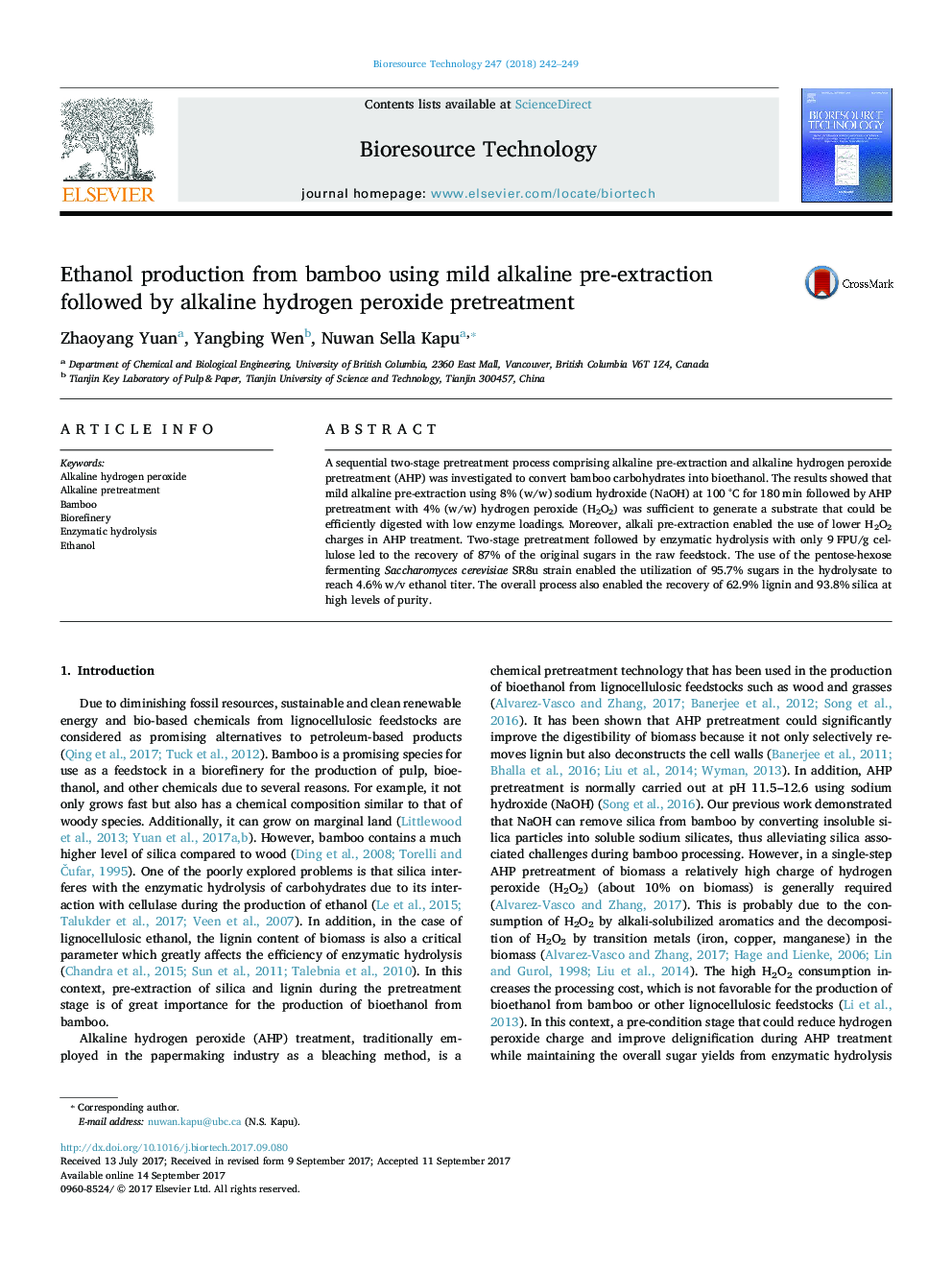| Article ID | Journal | Published Year | Pages | File Type |
|---|---|---|---|---|
| 4996645 | Bioresource Technology | 2018 | 8 Pages |
â¢Sequential alkali extraction-AHP treatment enabled efficient bamboo fractionation.â¢The proposed process produces ethanol and recovers lignin and silica.â¢Compared to traditional one-stage AHP, H2O2 demand could be substantially lowered.â¢High ethanol titer was reached with relatively low enzyme loadings.
A sequential two-stage pretreatment process comprising alkaline pre-extraction and alkaline hydrogen peroxide pretreatment (AHP) was investigated to convert bamboo carbohydrates into bioethanol. The results showed that mild alkaline pre-extraction using 8% (w/w) sodium hydroxide (NaOH) at 100 °C for 180 min followed by AHP pretreatment with 4% (w/w) hydrogen peroxide (H2O2) was sufficient to generate a substrate that could be efficiently digested with low enzyme loadings. Moreover, alkali pre-extraction enabled the use of lower H2O2 charges in AHP treatment. Two-stage pretreatment followed by enzymatic hydrolysis with only 9 FPU/g cellulose led to the recovery of 87% of the original sugars in the raw feedstock. The use of the pentose-hexose fermenting Saccharomyces cerevisiae SR8u strain enabled the utilization of 95.7% sugars in the hydrolysate to reach 4.6% w/v ethanol titer. The overall process also enabled the recovery of 62.9% lignin and 93.8% silica at high levels of purity.
